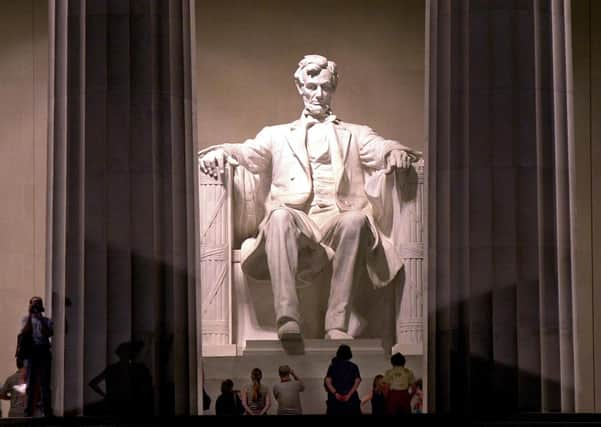Abraham Lincoln sought compromise. So should we – John Sturrock


‘Discourage litigation. Persuade your neighbours to compromise whenever you can. Point out to them how the nominal winner is often a real loser, in fees, expenses, and waste of time. As a peacemaker the lawyer has a superior opportunity of being a good man. There will still be business enough.’ These are the words of Abraham Lincoln over 150 years ago.
It is said that Lincoln was a skilled lawyer and a formidable opponent in the court room. And yet he was keenly aware of the limitations, unpredictability and risks of pursuing litigation, even if successful. Lincoln encouraged negotiation wherever possible. He was able to set aside his own ego and emotions and put his clients’ interests first.
Advertisement
Hide AdAdvertisement
Hide AdMuch more recently, in 1983, the then Chief Justice of the United States, Warren Burger, addressed the American Bar Association. He pointed out that ‘’The entire legal profession – lawyers, judges, law teachers – has become so mesmerised with the stimulation of the courtroom conflict that we tend to forget that we ought to be healers of conflicts.” He asked: “Should lawyers not be healers? Healers, not warriors? Healers, not procurers? Healers, not hired guns?”
Mahatma Gandhi observed: “I understood that the true function of a lawyer was to unite parties riven asunder.” In other words, Gandhi recognised that many clients want peace and harmony in their lives and lawyers can facilitate that. The real goal should be maintaining dignity on both sides, whether the parties are corporations or married couples. How well do lawyers achieve that?
Perhaps lawyers have been perceived as generally cautious, risk averse and concerned with maintaining the status quo. These characteristics may well be a function of legal education which has placed emphasis on linear thinking, logical causation and rational analysis, a kind of mechanistic Newtonian worldview, with attention on minutiae. That may have been appropriate in an apparently simpler world. However, to extend the scientific analogy, the volatile complexity which underpins quantum physics tells us that things are much less certain and more ambiguous than we have traditionally thought.
Never has this been more true than today. When it appears that the courts may be unable to handle thousands of cases in the months and even years ahead, the words of Lincoln, Burger and Gandhi seem particularly apposite. Big picture thinking is essential. Lawyers as agents of change may feel uncomfortable and unfamiliar. But there is no choice. Adaptation to new ways of doing things is no longer optional. Changes which may have taken years are now happening in weeks.
We’ll want to find more creative ways to help clients resolve disputes than relying on the justice system, even as a backdrop in which the “shadow of the court” provides some sort of incentive to settle. Working with clients as early as possible to negotiate a sensible outcome will call on the skills of lawyers in every area of practice. The current situation presents a real opportunity to encourage the kind of step change in addressing disputes which will fit well with the ambitions of Scotland’s National Performance Framework – and reflect the aspirations of Lincoln and others. The use of online technology, collaborative problem-solving, mediation and other effective ways to encourage cooperative solutions is likely to be central.
I have been impressed at how effective an online platform such as Zoom can be. Eight weeks ago, I would have argued that online mediation was an inadequate substitute in the kind of cases I undertake where face to face meetings seem so important. However, while not pretending that the atmosphere is the same, my reservations about establishing relationships using video have fallen away to a considerable extent. I am surprised and encouraged by what can be achieved. At a time when neither face-to-face mediation nor most court proofs are likely to occur in the foreseeable future, this becomes an acceptable alternative which also minimises travel and other costs associated with using physical space. That should not be overlooked as we seek ways to reduce the carbon footprint of dispute resolution.
We are entering a new era. Change is not optional. Our ability to embrace it is likely to define our individual and collective futures. There will still be business enough.
John Sturrock is Founder and Senior Mediator, Core Solutions Group